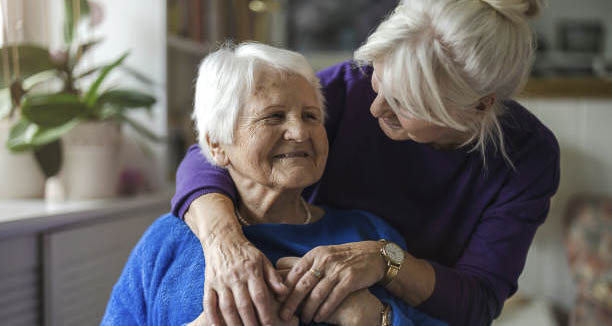
Not only will some workers not qualify for the money they’re being told should give them peace of mind about possible long-term-care needs, Washingtonians who do qualify for a WA Cares benefit won’t be able to fully choose how the money gets spent
Elizabeth New (Hovde)
Washington Policy Center
The May 1 meeting of a WA Cares oversight commission should be must-see-TV, as it made one thing super clear: There is going to be a lot of disappointment if WA Cares remains a mandatory program funded by 58 cents (or more) of every $100 a worker earns.

Not only will some workers not qualify for the money they’re being told should give them peace of mind about possible long-term-care needs, Washingtonians who do qualify for a WA Cares benefit won’t be able to fully choose how the money gets spent. There is the law that created WA Cares to contend with, a state agency making rules about minimum caregiver qualifications and provider payment maximums, and there’s a union lobbying to have some control of the caregivers paid with WA Cares dollars, including thousands of family caregivers.
The concern about what will be required of a family caregiver to get paid by the state on behalf of a WA Cares beneficiary — training, payments, union affiliation — is what much of the meeting focused on, in addition to the contingency planning needed in case voters pass Initiative 2124 in November. (That initiative would make participation in WA Cares optional instead of mandatory. State agencies and commission members think it might pass. As such, the commission, the Employment Security Department and the Office of the State Actuary are all in contingency-planning mode.)
Required training for family caregivers
At last week’s WA Cares webinar, I asked whether the training family caregivers are required by law to take before receiving any WA Cares dollars would cost them. How much training will be required of someone who has been caring for mom or dad for years?
The webinar hosts were unsure, as the rules for caregivers are currently being discussed and written. Earlier this year, I reported the state decided to require training through Consumer Direct Care Network, which partners with SEIU 775 Benefits Group.
Sen. Curtis King, R-Yakima, was one of several people Wednesday expressing concern that a beneficiary won’t just get money to pay a caregiver of their choosing. He finds it “inconceivable” to make family caregivers go through a union or sign up with an agency to bring meds to mom.
An SEIU representative on the commission is on a smaller workgroup that is working out the fine print. The workgroup would report back. Others on Wednesday seemed to think a larger group conversation was in order.
Stay tuned. While some commission members argued we have years to figure out the caregiver details, I think people being asked to make decisions about WA Cares in November would like those details sooner than later.
Elizabeth New (Hovde) is a policy analyst and director of the Centers for Health Care and Worker Rights. She is a Clark County resident.
Also read:
- Opinion: An unacceptable tax burdenNancy Churchill outlines new tax proposals in Washington state, warning of growing burdens on working families amid budget shortfalls and government overspending.
- POLL: Is it time for new leadership at Vancouver City Hall?A new weekly poll asks whether Vancouver voters should prioritize replacing the mayor and city council in the 2025 election.
- Opinion: How will the majority party’s new budget and tax proposals affect you?Rep. John Ley critiques the state’s proposed 2025-27 budgets, warning of record-breaking tax hikes and economic impacts.
- Opinion: Washington’s EV sales far short of next year’s state mandateTodd Myers highlights how Washington’s EV sales fall short of next year’s mandate, raising concerns over rising car prices and limited options.
- Letter: ‘Our state and local governments need to learn to live within their means’Camas resident Lauren Colas voices strong opposition to Proposition 1 and other tax proposals, calling for state and local governments to rein in spending.










